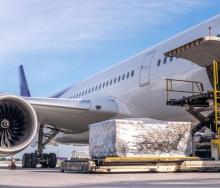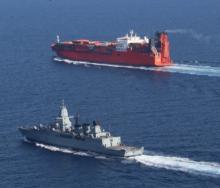The Federal Maritime Commission earlier this week provided feedback on the latest developments with regard to the implementation of the Ocean Shipping Reform Act of 2022 (Osra) - and has announced that it will issue a Supplemental Notice of Proposed Rulemaking (SNPRM) that addresses issues raised in response to the Unreasonable Refusal to Deal or Negotiate with Respect to Vessel Space Accommodations rule issued last September.
The announcement came during a Commission meeting in Washington where implementation of the Osra and a briefing on economic and industry trends were discussed in open session.
The Commission received almost 30 comments in response to its Notice of Proposed Rulemaking (NPRM) on unreasonable refusal to deal or negotiate.
According to the FMC, the comments raised a multitude of substantive questions that demand appropriate time and further opportunity for comment to be given thorough consideration. The SNPRM will address these matters and provide the Commission with the opportunity to receive additional public comments. It will issue a release advising when the SNPRM is published.
During the briefing, the Commission was advised that progress was also being made on other rulemakings ordered in the statute. Commission staff are reviewing the more-than 180 public comments received in response to the Notice of Proposed Rulemaking on Demurrage and Detention billing requirements. They're also working on a draft proposed rule addressing unfair or unjustly discriminatory methods.
The Commission has completed its review of market conditions, finding circumstances at this time do not warrant invoking temporary emergency authority established under Osra to require information sharing among supply chain participants. It issued a Request for Information, as was directed by the legislation and considered as part of the analysis comments it received in response.
The public is continuing to take advantage of the ability to file Charge Complaints, created as a provision of Osra. The Commission has received more than 200 filings since the law’s enactment in June 2022. More than 70 charge complaints met the threshold requirements for being referred to investigators. Commission staff reported that the charge complaint process was proving successful at promoting informal settlements as well as waivers of demurrage and detention billings. Staff estimate that more than $700 000 in charges has been refunded by carriers since June.
The Osra implementation briefing was followed by an update on economic and competition issues that included a discussion of the Commission’s robust monitoring programme.
Inbound US volumes and rates at pre-Covid levels
Commissioners were advised that both container volumes and freight rates on inbound trades had returned to essentially pre-pandemic levels. Significant volumes of containerised imports have shifted to East and Gulf Coast ports. Exports off the Gulf Coast are not enjoying parallel growth, upsetting what has been the traditional model of fairly balanced import and export volumes. The cost to ship exports remains slightly elevated compared to pre-pandemic.
MSC’s market share has increased substantially in the US-Asia and US-Europe trades over the past two years. Both MSC and Maersk have substantial market shares and have been offering additional services outside their alliance. Despite growth of alliance carriers, non-alliance carrier market share has been consistent on the US-Europe trade and trending upward somewhat on the US-Asia trade.
The FMC points out that the US trades are seeing the abandonment of the marketplace by new entrants that began calling during the height of the pandemic. Those lines, typically smaller companies that operate in the Intra-Asia, Oceania, and Africa markets, redeployed ships to the transpacific trade lane when cargo was abundant and rates were historically high. With volumes and rates returning to more typical and traditional levels, there is no longer the incentive for these carriers to operate in what are not their usual markets. Despite the withdrawal of these carriers, more than sufficient capacity exists to serve US shippers.













